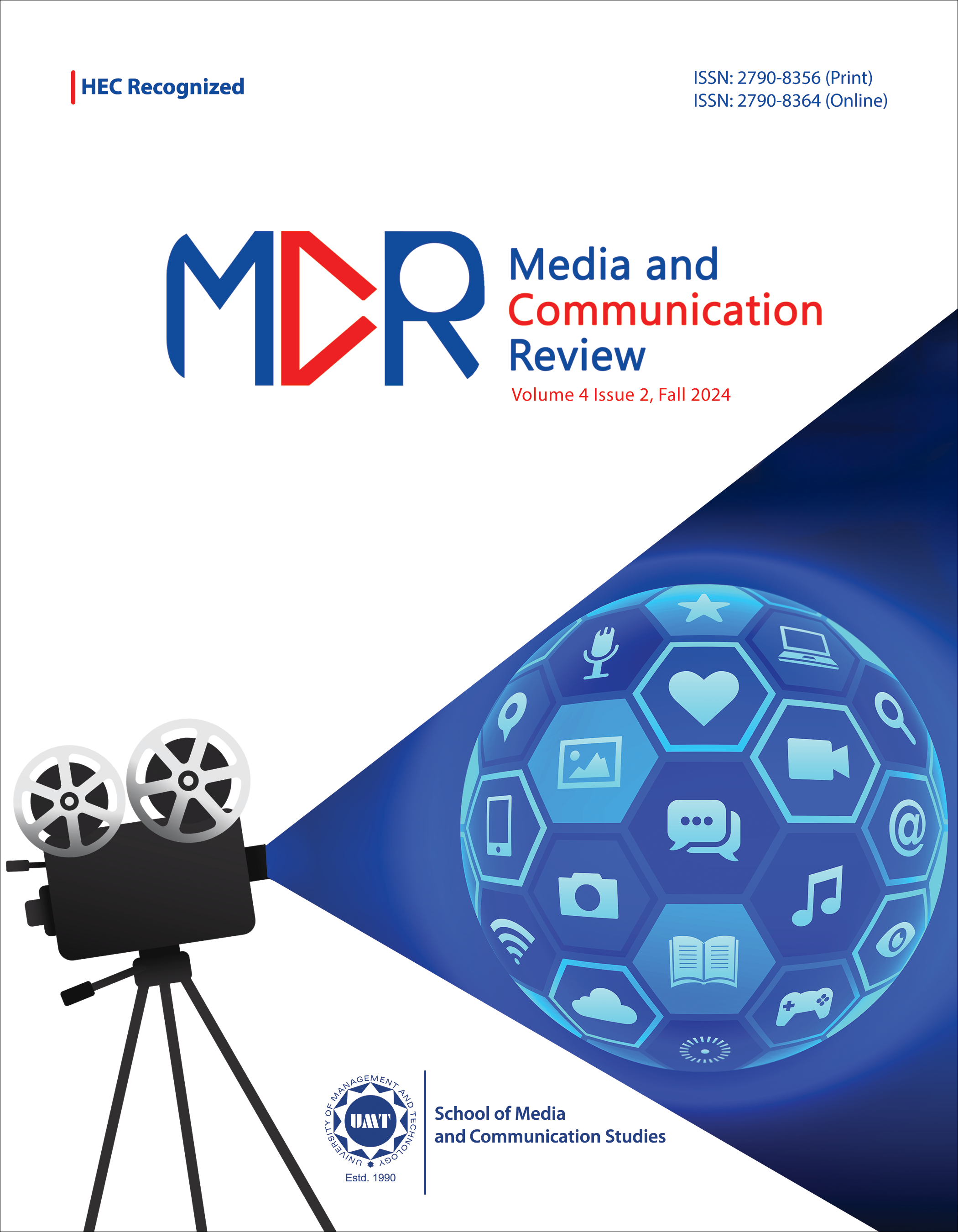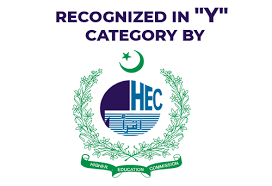Promoting Peace in Pakistan through Religious Tourism: Strategies, Impact, and Challenges
Abstract
 Abstract Views: 0
Abstract Views: 0
Religious tourism has gained significant traction in recent years, showcasing its potential to foster peace and mutual respect among diverse faiths. This study examines the impact of religious tourism in Pakistan, exploring its role in promoting diplomacy, cross-cultural interaction, and interfaith harmony while addressing associated challenges. Utilizing surveys and in-depth interviews with religious tourists, local communities, and stakeholders, the research identifies initiatives such as interfaith dialogues, cultural exchange programs, heritage preservation, and educational efforts as effective strategies for fostering tolerance and respect. Findings highlight the socio-economic benefits of religious tourism for rural communities, including improved infrastructure and enhanced cross-cultural engagement. However, over-tourism, cultural insensitivity, and security concerns underscore the need for proactive measures. The Kartarpur Corridor exemplifies religious tourism’s diplomatic potential, enhancing regional peace and global understanding. This study advocates collaborative efforts to maximize these opportunities, positioning Pakistan as a model for leveraging religious tourism to overcome divides and promote harmony.
Downloads
References
Abbasi, M. M. H., & Khan, M. (2022). Nation branding through religious tourism in Pakistan by utilizing social media tools. Journal of Development and Social Sciences, 3(2), 632– 643. http://doi.org/10.47205/jdss.2022(3-II)57
Adler, N. J., & Aycan, Z. (2018). Cross-cultural interaction: What we know and what we need to know. Annual Review of Organizational Psychology and Organizational Behavior, 5, 307–333. https://doi.org/10.1146/annurev-orgpsych-032117-104528
Ali, A., & David, M. K. (2021). Investigating interfaith harmony and religious tolerance through text messages: A case study of Sindhi Hindus and Sindhi Muslims in Sindh, Pakistan. Language in India, 21(6), 186–203.
Alqahtany, A., & Aravindakshan, S. (2022). Urbanization in Saudi Arabia and sustainability challenges of cities and heritage sites: Heuristical insights. Journal of Cultural Heritage Management and Sustainable Development, 12(4), 408–425. https://doi.org/10.1108/JCHMSD-07-2020-0108
Altinay, L., & Kozak, M. (2021). Revisiting destination competitiveness through chaos theory: The butterfly competitiveness model. Journal of Hospitality and Tourism Management, 49, 331–340. https://doi.org/10.1016/j.jhtm.2021.10.004
Bashir, A., & Singh, R. (2022). Mapping the foundation and trends in tourism research: A bibliometric review of literature in tourism: An international interdisciplinary journal. Tourism: An International Interdisciplinary Journal, 70(3), 480–492. https://doi.org/10.37741/t.70.3.10
Bleibleh, S., & Awad, J. (2020). Preserving cultural heritage: Shifting paradigms in the face of war, occupation, and identity. Journal of Cultural Heritage, 44, 196–203. https://doi.org/10.1016/j.culher.2020.02.013
Boissevain, J. (1996). 'But we live here!': Perspectives on cultural tourism in Malta. In L. Briguglio, R. Butler, D. Harrison, & W. L. Filho (Eds.), Sustainable tourism in islands and small states: Issues and policies (pp. 220–240). Pinter Publishers.
Bond, N., Packer, J., & Ballantyne, R. (2015). Exploring visitor experiences, activities and benefits at three religious tourism sites. International Journal of Tourism Research, 17(5), 471–481. https://doi.org/10.1002/jtr.2014
Brown, L. (2009). International education: a force for peace and cross‐cultural understanding? Journal of Peace Education, 6(2), 209–224.
Bu, L. (1999). Educational exchange and cultural diplomacy in the Cold War. Journal of American Studies, 33(3), 393–415. https://doi.org/10.1017/S0021875899006167
Bukhari, S. A. G., Athar, S., Quadri, S. S. A., Kamil, A., Hussain, M., Khan, B., & Awan, T. A. (2020). Rights of minorities in islam and situation of minorities in Pakistan: Analysis from public policy discourse. Al-Qanṭara, 6(2), 88–95.
Carbone, F. (2017). International tourism and cultural diplomacy: A new conceptual approach towards global mutual understanding and peace through tourism. Tourism: An International Interdisciplinary Journal, 65(1), 61–74.
Cheer, J. M., & Lew, A. A. (2017). Sustainable tourism development: Towards resilience in tourism. Interaction, 45(1), 10–15.
Chng, K. S., & Narayanan, S. (2017). Culture and social identity in preserving cultural heritage: An experimental study. International Journal of Social Economics, 44(8), 1078–1091. https://doi.org/10.1108/IJSE-10-2015-0271
Dagnachew, S. (2020). Interfaith tourism in Ethiopia: An opportunity for socio-economic development and peace-building? In I. S. McIntosh, N. F. Haddad, & D. Munro (Eds.), Peace journeys: A new direction in religious tourism and pilgrimage research (pp. 80–97). Cambridge Press.
Dahles, H., & Bras, C. H. (1999). Tourism and small entrepreneurs. development, national policy and entrepreneurial culture. Indonesian cases. Vrije Universiteit Amsterdam. https://research.vu.nl/en/publications/tourism-and-small-entrepreneurs-development-national-policy-and-e
Dallen, T. J., & Boyd, S. W. (2002). Heritage tourism themes in tourism. Pearson Education.
Faris, H., & Griffin, K. A. (2020). The impact of COVID-19 on religious tourism and pilgrimage to the holy city of Karbala. International Journal of Religious Tourism and Pilgrimage, 8(7), Article e8. https://doi.org/10.21427/dkd5-vt63
Giampiccoli, A., & Saayman, M. (2017). Community-based tourism, responsible tourism, and infrastructure development and poverty. African Journal of Hospitality, Tourism and Leisure, 6(2), 1–28.
Goirizelaia, M. (2020). Public diplomacy by educational and cultural exchange programs. Place Branding and Public Diplomacy, 16, 279–287. https://doi.org/10.1057/s41254-019-00154-2
Hall, C. M. (2019). Constructing sustainable tourism development: The 2030 agenda and the managerial ecology of sustainable tourism. Journal of Sustainable Tourism, 27(7), 1044–1060. https://doi.org/10.1080/09669582.2018.1560456
Insch, A. (2020). The challenges of over-tourism facing New Zealand: Risks and responses. Journal of Destination Marketing & Management, 15, Article e100378. https://doi.org/10.1016/j.jdmm.2019.100378
Isaac, R. K., & Farkic, J. (2024). Walled off: Tourism and justice in oppressed communities. Annals of Tourism Research, 108, Article e103816. https://doi.org/10.1016/j.annals.2024.103816
Kaplan, S. (2014). Identifying truly fragile states. The Washington Quarterly, 37(1), 49–63. https://doi.org/10.1080/0163660X.2014.893173
Khadaroo, J., & Seetanah, B. (2007). Transport infrastructure and tourism development. Annals of Tourism Research, 34(4), 1021–1032. https://doi.org/10.1016/j.annals.2007.05.010
Khan, A. U., Zaman, G., & Baloch, Q. B. (2019). Promoting religious tourism in Pakistan: Empirical evidence from Sikh Pilgrims visiting Pakistan. City University Research Journal, 9(4), 805–818.
Mandala, L. (2015). Arts, tourism, & cultural diplomacy. In C. Lord (Ed.), Arts and America: Arts, culture, and the future of America’s communities (pp. 129–140). Americans for the Arts.
Masood, M., Xiang, M., Skoric, M. M., & Ahmed, S. (2022). Trust in religious others: A three-way interaction model of religious bias, informational use of digital media, and education. International Journal of Communication, 16, 3402–3421.
Mekonnen, H., Bires, Z., & Berhanu, K. (2022). Practices and challenges of cultural heritage conservation in historical and religious heritage sites: Evidence from North Shoa Zone, Amhara Region, Ethiopia. Heritage Science, 10(1), Article e172. https://doi.org/10.1186/s40494-022-00802-6
Moaven, Z., Khajenoori, B., Forooghan Geransaieh, Z., & Rayanpour, R. (2017). Globalization of culture and religious tourism. European Online Journal of Natural and Social Sciences: Proceedings, 6(1),1–12.
Ojo, B. Y., & Busayo, B. M. (2017). Exploring the relationship between religion tourism and economic development of a host community. International Journal of Business and Management Invention, 6(9), 41–51.
Olsen, D. H., & Timothy, D. J. (2006). Tourism and religious journeys. In D. J. Timothy & D. H. Olsen (Eds.), Tourism, religion and spiritual journeys (pp. 1–21). Routledge.
Pizam, A., & Mansfeld, Y. (1996). Tourism, crime and international security issues. Wiley Online Library.
Pohl, F. (2009). Interreligious harmony and peacebuilding in Indonesian Islamic education. In N. M. Noor & C. J. Montiel (Eds.), Peace psychology in Asia (pp. 147–160). Springer.
Raj, R., & Morpeth, N. D. (2007). Introduction: Establishing linkages between religious travel and tourism. In R. Raj & N. D. Morpeth (Eds.), Religious tourism and pilgrimage festivals management: An international perspective (pp. 1–14). CABI Digital Library.
Rinschede, G. (1992). Forms of religious tourism. Annals of Tourism Research, 19(1), 51–67. https://doi.org/10.1016/0160-7383(92)90106-Y
Rysbekova, S., Duissenbayeva, A., & Izmailov, I. (2014). Religious tourism as a sociocultural phenomenon of the present “The unique sense today is a universal value tomorrow. This is the way religions are created and values are made.”. Procedia-Social and Behavioral Sciences, 143, 958–963. https://doi.org/10.1016/j.sbspro.2014.07.534
Scheffler, T. (2007). Interreligious dialogue and peacebuilding. Die Friedens-Warte, 82(2/3), 173–187.
Seraphin, H., Sheeran, P., & Pilato, M. (2018). Over-tourism and the fall of Venice as a destination. Journal of Destination Marketing & Management, 9, 374–376. https://doi.org/10.1016/j.jdmm.2018.01.011
Sharpley, R. (2009). Tourism, religion and spirituality. In M. James (Ed.), The sage handbook of tourism studies (pp. 237–253). Routledge.
Sharpley, R. (2014). Host perceptions of tourism: A review of the research. Tourism Management, 42, 37–49. https://doi.org/10.1016/j.tourman.2013.10.007
Shukla, A. (2019, April 19). The Politics of Kartarpur corridor and India-Pakistan relations. Indian Council of World Affairs. https://tinyurl.com/4sf67j6x
Simone-Charteris, M. T., & Boyd, S. W. (2010). The development of religious heritage tourism in Northern Ireland: Opportunities, benefits and obstacles. Tourism: An International Interdisciplinary Journal, 58(3), 229–257.
Singh, G. (2020). The control of sacred spaces: Sikh shrines in Pakistan from the partition to the Kartarpur corridor. Sikh Formations, 16(3), 209–226. https://doi.org/10.1080/17448727.2019.1593305
Spenceley, A., & Snyman, S. (2017). Protected area tourism: Progress, innovation and sustainability. Tourism and Hospitality Research, 17(1), 3–7. https://doi.org/10.1177/1467358416646646
Stone, P. R., & Sharpley, R. (2013). Deviance, dark tourism and ‘dark leisure. In S. Elkington & S. Gammon (Eds.), Contemporary perspectives in leisure: Meanings, Motives and lifelong learning (pp. 54–64). Routledge.
Timothy, D. J., & Boyd, S. W. (2006). Heritage tourism in the 21st century: Valued traditions and new perspectives. Journal of Heritage Tourism, 1(1), 1–16.
Zalli, E. (2024). Globalization and education: Exploring the exchange of ideas, values, and traditions in promoting cultural understanding and global citizenship. Interdisciplinary Journal of Research and Development, 11(1S1), 55–55. https://doi.org/10.56345/ijrdv11n1s109
Copyright (c) 2024 Sajid Hussain, Asim Manzoor, Hassan Javaid

This work is licensed under a Creative Commons Attribution 4.0 International License.




